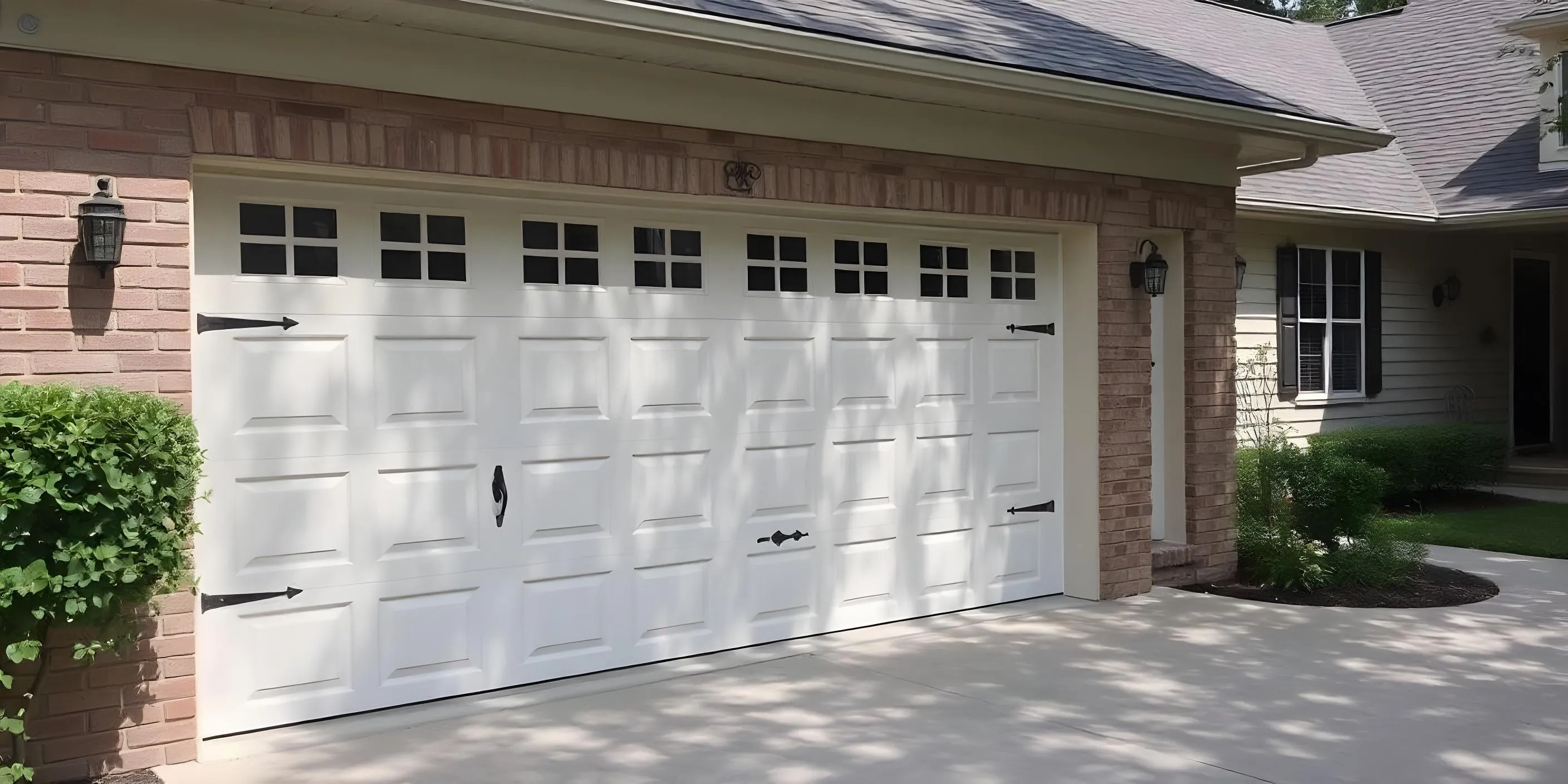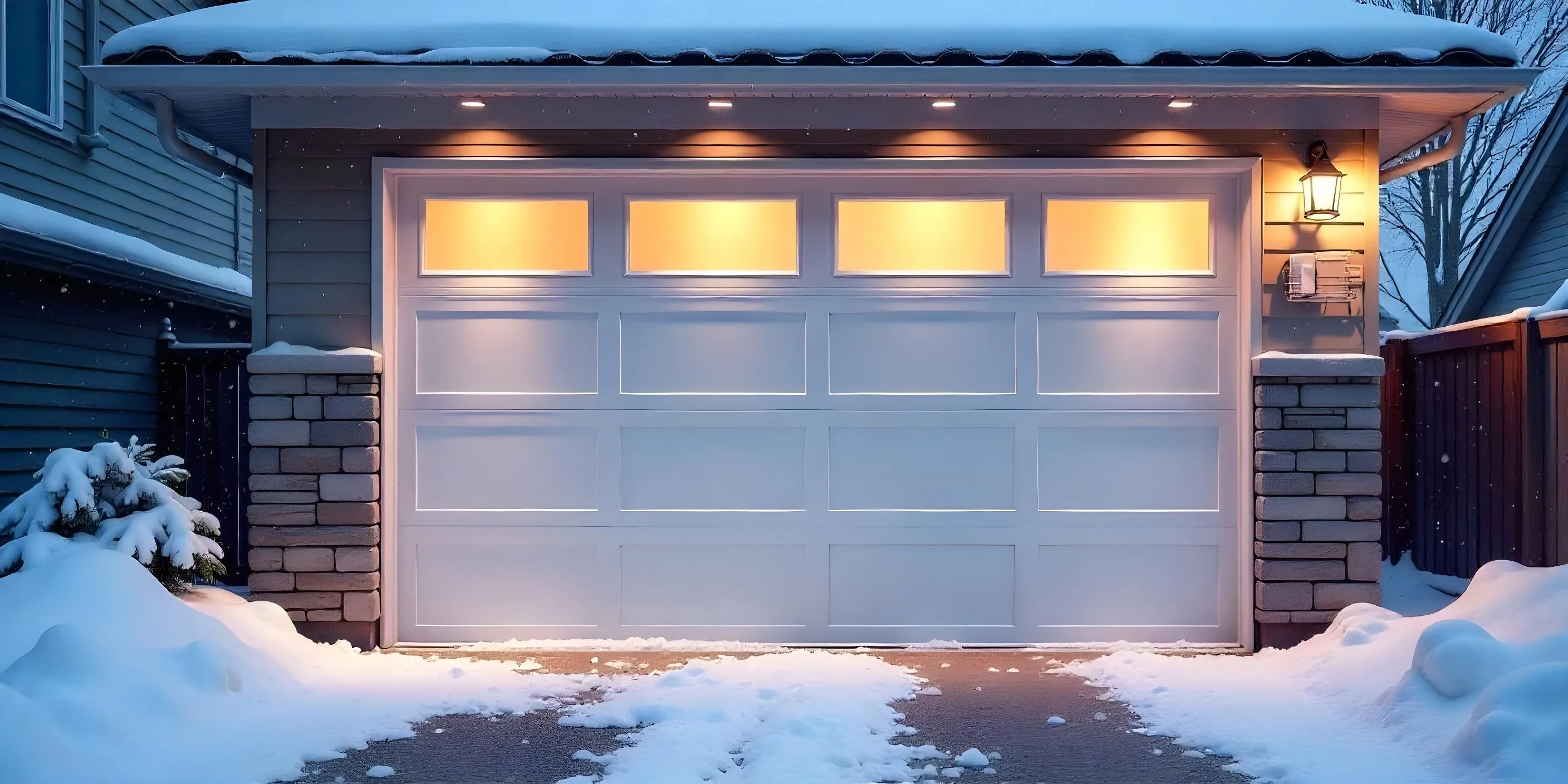How Garage Door U-Factor Impacts Home Comfort
Published: Sep 30, 2025
Your home’s heating and cooling system works hard, but there’s a big, often overlooked entryway that might be costing you: the garage door. Have you ever considered how its insulation impacts overall comfort? A key part of that is the garage door U-factor, which measures how well the door resists heat flow. In this article, Up & Down Garage Doors explains what the U-factor means — and how a well-insulated door can help lower energy bills while keeping your home more comfortable.
What Is a Garage Door U-Factor?
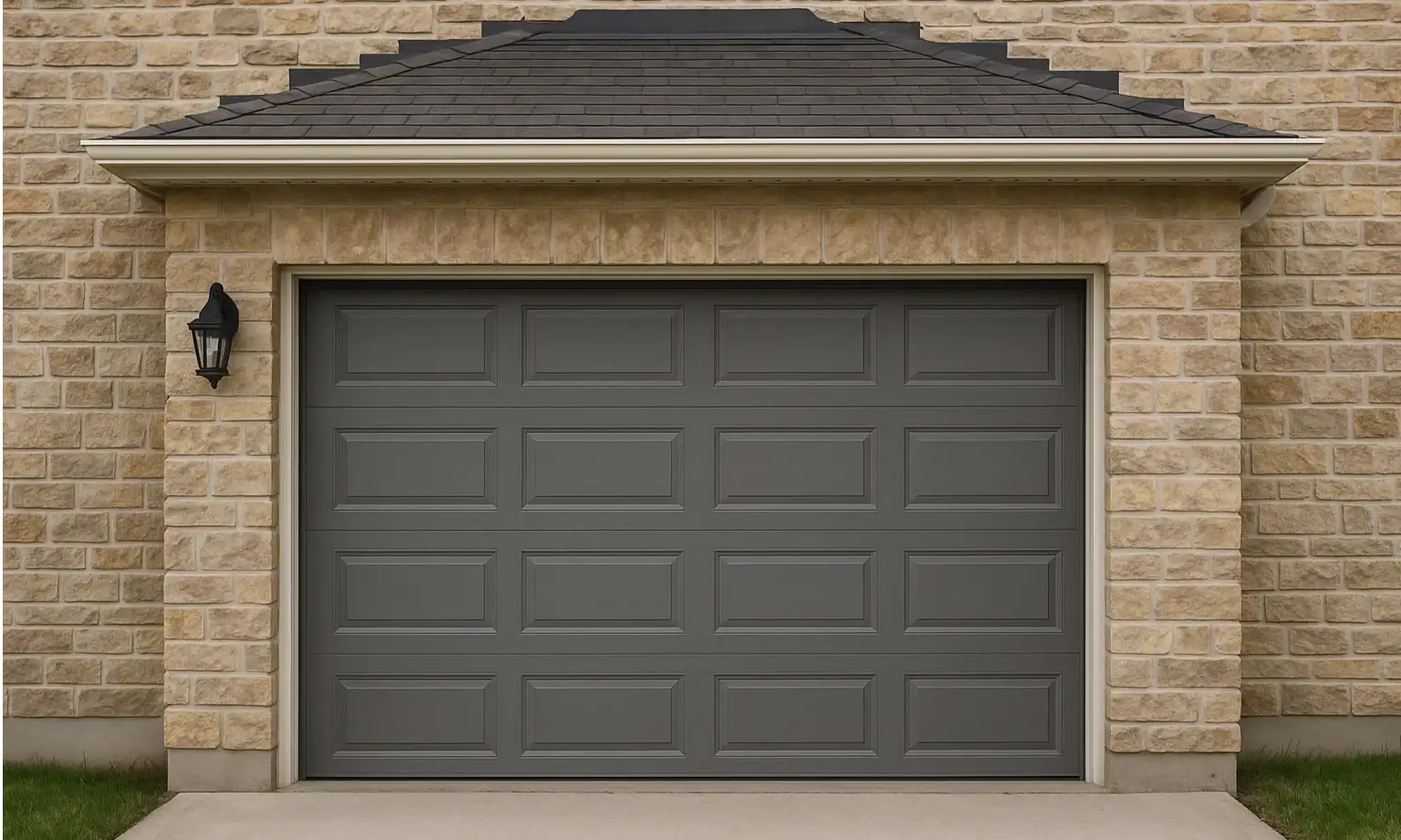
The U-factor, sometimes referred to as the door U-value, is a measure of heat transfer through a material. It’s a bit different from the more commonly known R-value, which measures resistance to heat flow. Think of it this way: a lower U-factor means better insulation and less heat transfer, while a higher R-value also means better insulation. For garage doors, the door U-factor is the most accurate way to measure how well the entire door system — including panels, windows, and seals — prevents heat from passing through. Choosing a door with a low U-factor is a smart way to boost your home’s energy efficiency and comfort. To understand more, you can also explore why the insulation is important in summer for your home.

The Benefits of a Low Door U-Factor
A well-insulated garage with a low door U-factor offers several key advantages for your home’s comfort and efficiency. Here is what you can expect:
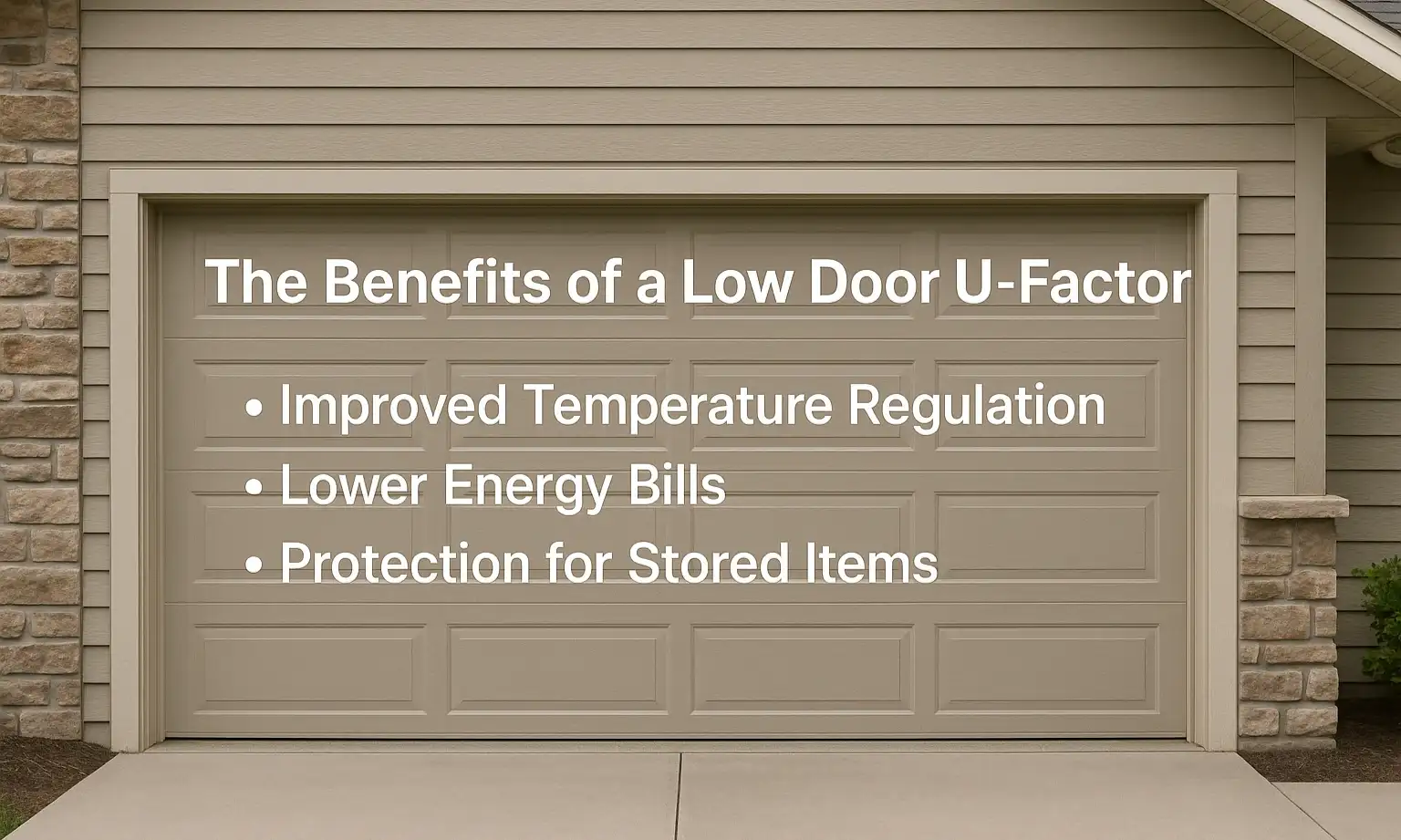
- Improved Temperature Regulation: It helps regulate the temperature inside your garage, preventing it from becoming an extremely hot or cold zone. This means your home’s HVAC system won’t have to work as hard to maintain a comfortable temperature, especially in adjacent rooms.
- Lower Energy Bills: This improved thermal efficiency can lead to noticeable savings on your monthly energy bills.
- Protection for Stored Items: A well-insulated garage also protects anything you store inside from extreme temperature swings, from tools and paint to electronics and holiday decorations.

How to Choose the Right Insulated Garage Door
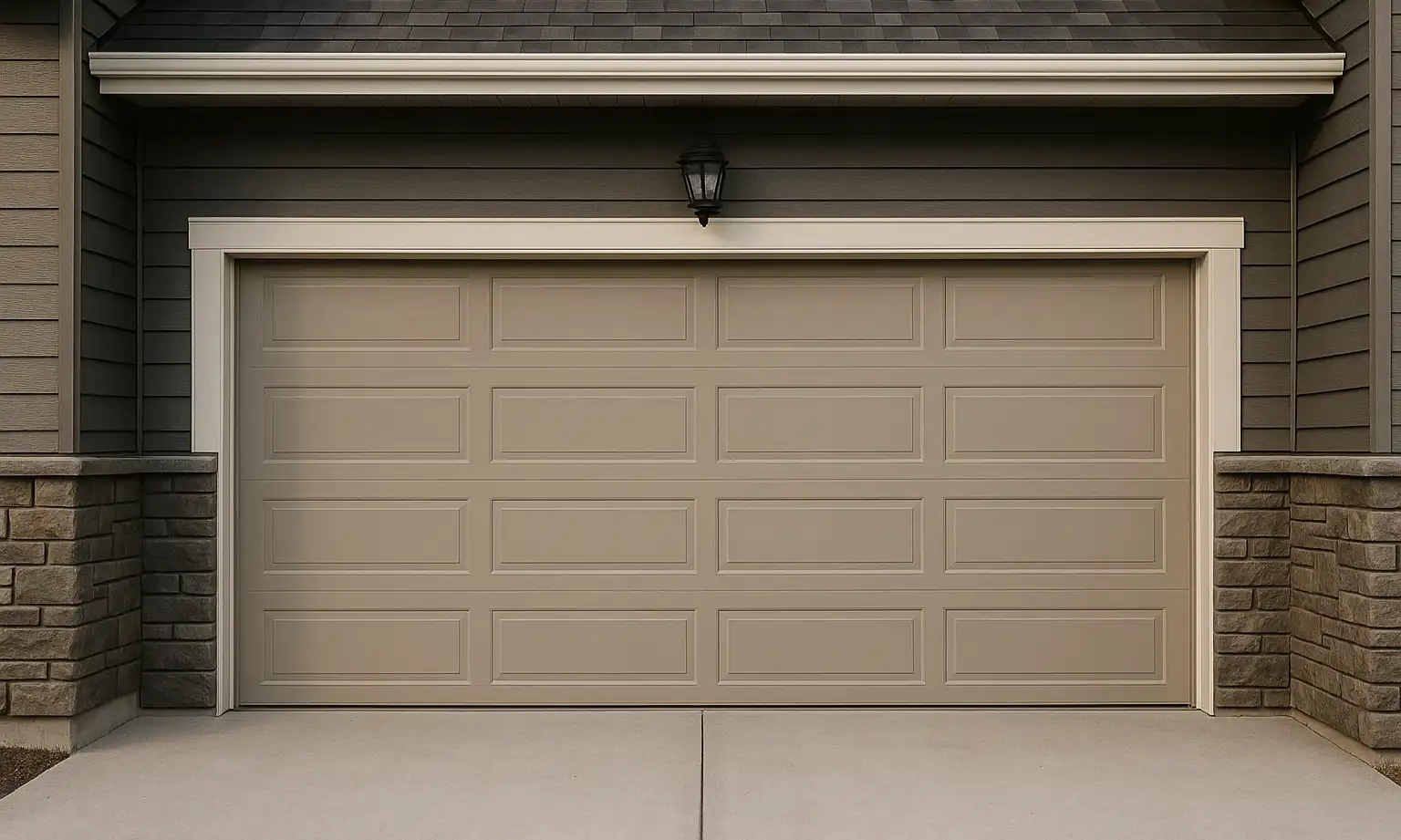
When shopping for a new garage door, you’ll want to look for one that is well-insulated. Manufacturers typically provide the insulated garage door U-value or R-value directly in the product specifications. A lower U-factor indicates a better-insulated door. When considering your options, look for a low-insulated garage door U-value, which is a key detail. There are two primary types of insulation: polystyrene and polyurethane. Polystyrene is a rigid foam that comes in pre-cut panels, offering a cost-effective solution. Polyurethane is a foam that is injected into the door sections, expanding to fill the entire cavity and bonding to the steel. This makes the door stronger, more dent-resistant, and provides a higher insulating value. You can find more details in our dedicated blog post on choosing the best type of garage insulation. For expert advice and a wide range of high-quality, insulated doors, you can trust Up & Down Garage Doors to help you make the right choice for your home.

Ready for a More Comfortable Home? Contact Up & Down Garage Doors
In short, a garage door’s U-factor plays a significant role in your home’s comfort and energy efficiency. The lower the door U-value, the better the insulation, and the more comfortable your living spaces will be. This not only makes your garage a more pleasant place to be but also helps you save on energy costs throughout the year. Don’t let your garage be a weak point in your home’s energy efficiency. Ready to improve your home’s comfort and lower your energy bills? Contact Up & Down Garage Doors today to explore our high-quality garage door insulation services.
You may also like

